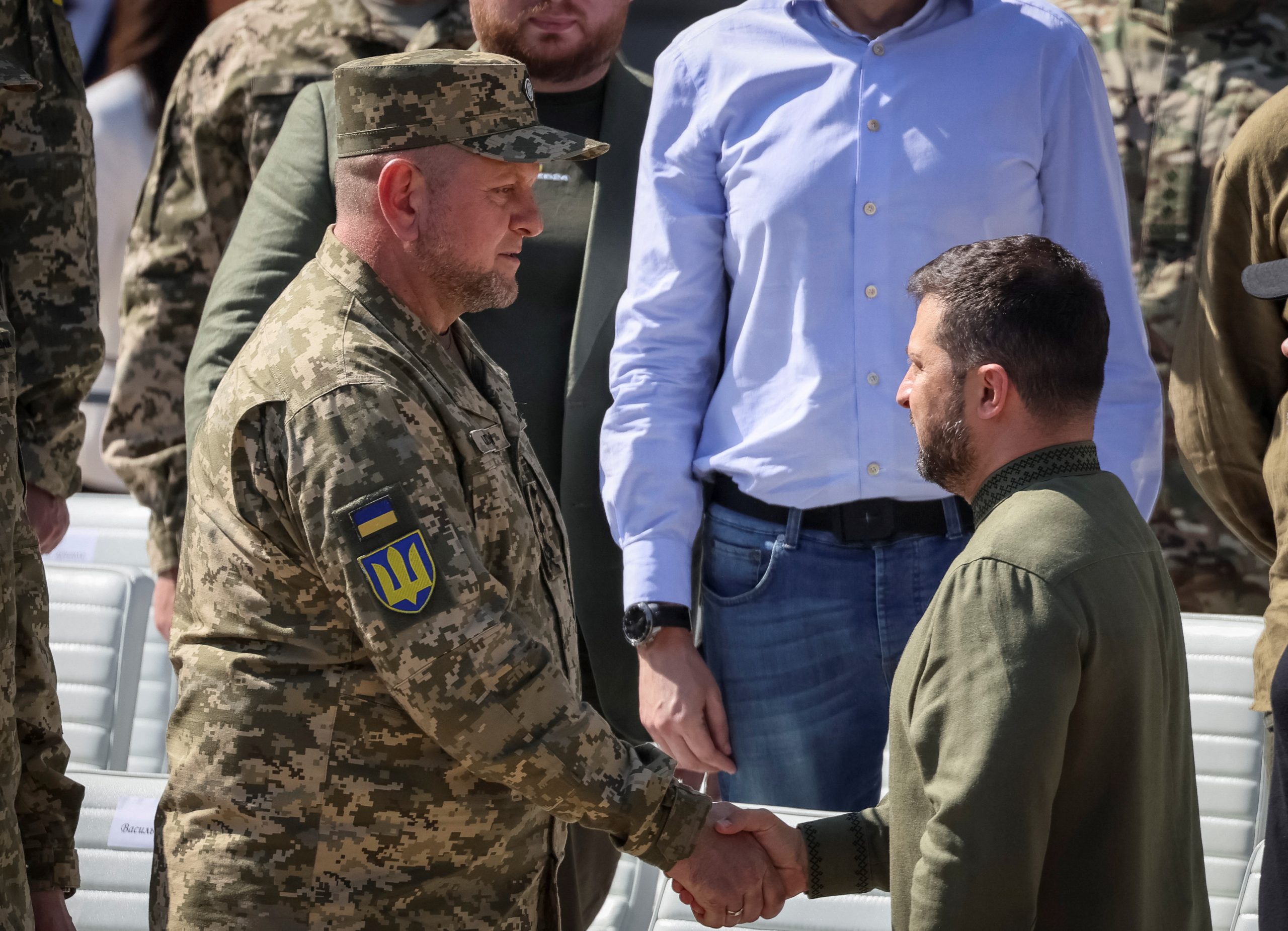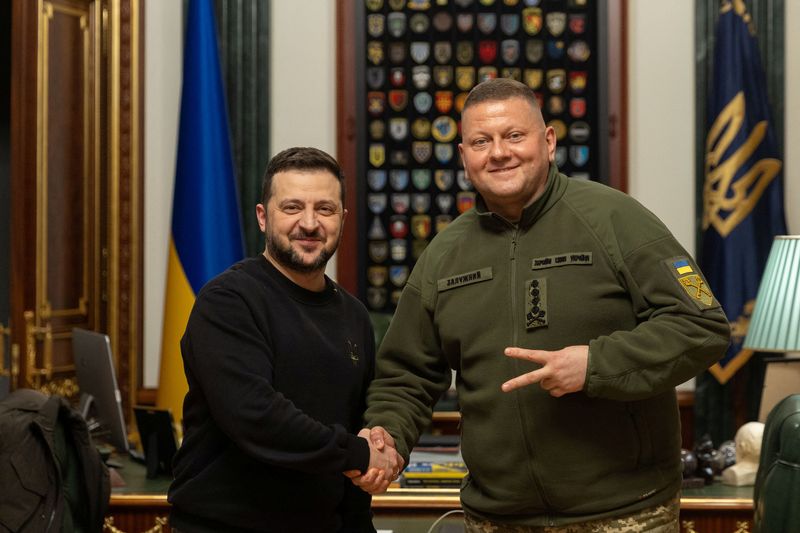President Volodymyr Zelenskiy made a bold move on Thursday by replacing Ukraine’s esteemed army chief with his ground forces commander. This decision comes amidst a critical juncture in the ongoing conflict with Russian forces, who have been gaining ground for nearly two years.
The decision to shake up the military leadership follows months of speculation regarding tensions between Zelenskiy and General Valeriy Zaluzhnyi, who is revered by many Ukrainians as a national hero.
Zelenskiy announced the transition, stating, “As of today, a new management team takes over the leadership of the Armed Forces of Ukraine.” He appointed Colonel General Oleksandr Syrskyi, 58, the former ground forces chief, to lead the Armed Forces. Syrskyi earned recognition for his role in defending Kyiv in 2022 and leading the successful Kharkiv counteroffensive later that year, earning him the nickname “snow leopard.”
However, the timing of this change is precarious, as Kyiv awaits crucial military aid from the United States, which has been delayed by political wrangling in the U.S. Congress.

Ukraine’s Change of Army Chief Amidst War with Russia: A Crucial Shake-Up at a Challenging Time (Credits: Reuters)
The U.S. State Department acknowledged the decision as a “sovereign decision” by Ukraine. Yet, internally, the replacement of Zaluzhnyi could have significant repercussions, potentially impacting troop morale across the extensive front lines and posing political risks for Zelenskiy.
While expressing gratitude to Zaluzhnyi for his service, Zelenskiy’s decision has elicited mixed reactions among the Ukrainian public. Many took to social media to praise Zaluzhnyi, affectionately known as the “Iron General,” highlighting his immense popularity and trust among citizens.
Some citizens in Kyiv openly questioned the wisdom of the decision, expressing concern about its potential implications. Zelenskiy’s decision also contrasts with Zaluzhnyi’s high public trust ratings, which exceeded 90% in a recent poll, surpassing Zelenskiy’s own approval rating.
Under Zaluzhnyi’s leadership, Ukrainian forces successfully defended Kyiv and regained territory in 2022. However, the tide of battle shifted last year as Russia intensified its offensive, putting pressure on the eastern front and attempting to besiege the town of Avdiivka.
Zelenskiy justified the leadership change citing the setbacks of the previous year, emphasizing the need for new tactics and strategies to confront evolving challenges on the ground.
The coordinated statements from both Zelenskiy and Zaluzhnyi suggest a deliberate effort to present a unified front amidst the leadership transition. Syrskyi, as the new army chief, inherits the responsibility to navigate these challenges, including the rotation of exhausted troops and the imperative of timely mobilization to reinforce frontline units.























